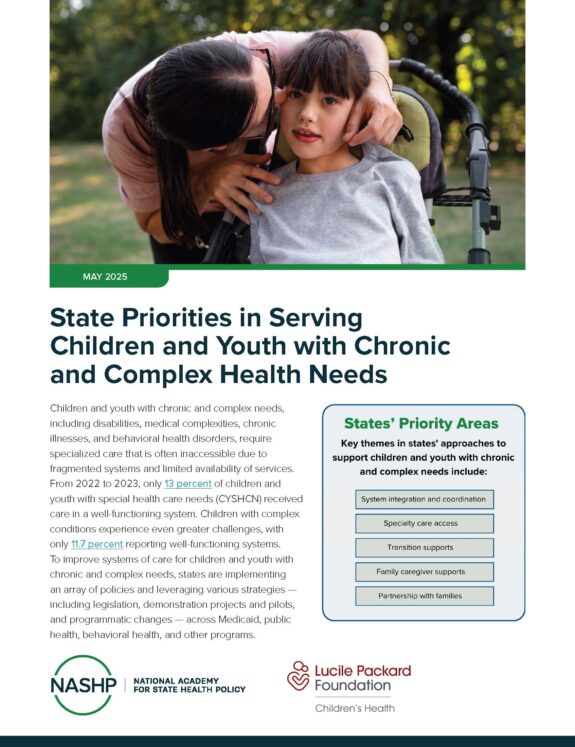Becoming Your Child’s Best Advocate and… Becoming the Partner You Want to Have
There are a lot of myths out there about us parents and about our children: We are special people. We are heroes. We are martyrs. We are only given what we can handle.
Fact is, disabilities are a natural part of life. Our children are not tragedies; they are not angels (at least mine aren’t). They are simply children with disabilities. And living with a disability is a lifelong process with many twists and turns, transitions and stages. Our children can have as good a life as anyone out there, with friends, purpose, and community.
My daughter is now 30. For the first 21 years of her life I thought that all I had to do was take good care of her… you know, feed, change diapers, have fun with her, love and cherish, all that stuff. And yet I spent most of her young and adolescent life dealing with medical appointments and hospital visits, Special Education, Regional Center, Mental Health, California Children Services, therapists of all kinds, psychologists, equipment programs, insurance companies. And while many of these agencies are the payer of last resort, they have confusing regulations and eligibility requirements. I spent more time with the phone than I did with my daughter. Don’t get me wrong. We are really, really lucky to have services. I just wish they were a little easier to access—and that there wasn’t such “creativity” when interpreting the law. It has taken me a really long time to be a good partner, and that’s the point of this article: what I have learned about being a partner.
Some people think parent engagement means bringing donuts to meetings or volunteering at school. It can mean that. But I think being engaged means much more. Mostly, if you want to be a good partner, you have to be the partner you want to have.
The partner I want to have, the partner I want to be, is informed and educated, with healthy inner resources and a really good sense of humor. I had to learn this the hard way and on the fly, as so many of us did. So this article about partnering is really about imagining the Parent Boot Camp I wish I’d had when I started this journey with my daughter.
Attending Parent Boot Camp
Let me fantasize for a moment: Parent Boot Camp would take place for a week out in the country. It would be by a lake with private cabins (with fireplaces) for entire families so my husband and my children could come with me. Everything would be completely accessible so we wouldn’t have to worry about my daughter’s wheelchair. The place would have ponies and great food and fun games for every interest and ability. Everyone would be accepting and loving so no one would ask us to leave because my daughter makes so much noise or eats funny. Did I tell you the staff members who take care of the kids are excellent? So my husband and I can learn without worrying if our kids are okay. And the whole thing is free. That’s the fantasy. So what do we learn? This part is not fantasy. This is really important.
Building on Our Own Skills
The first thing the trainers tell us is that we are the best source of information about our children for the professionals who serve them. The purpose of Boot Camp is to build on the many skills we already have—and to develop the skills and knowledge we need in order to be the best advocates possible for our children. We learn that we can only do this by being effective collaborators and partners with all of the teachers and service providers who will come and go from our children’s lives. Then we learn disability history, the laws that affect systems and services, and our rights as parents—and our responsibilities.
Getting Organized
We learn how to keep information organized and accessible, things like birth certificates, immunization records, primary care reports, specialist and therapist reports, IEP records, psychological assessments, and samples of our child’s work. We fill out a book about our children and their special needs. It has all the information any agency may need from us so that when we need it, it’s there and we just copy it.
Then we learn:
- how to use videos to document what we may not be able to verbalize;
- how to use reports at meetings;
- how to read assessments, highlight observations, identify possible misconceptions, and add comments;
- how to prepare a list of questions and how to develop pros and cons;
- how to prioritize;
- how to monitor the services in the IEP and track whether or not our child is improving with those services;
- how to document; and
- how to speak succinctly.
We learn about the roles and responsibilities of different providers. We are taught how to articulate what we know about our children but sometimes have a hard time communicating, things like what motivates them, what soothes them, what makes them sad or angry. (When my husband and I take turns talking about our daughter, we sound like we’re talking about two different children. Sheesh! One of the trainers points out that, of course we see things differently! We are two different people.) We learn that it’s okay to have a difference of opinion.
We learn:
- how to describe what our child needs for every call, every meeting, every document;
- how to recognize when something isn’t working—how to write letters to let people know;
- how to celebrate when something is working—and how to write letters to let people know; and
- how to give an “elevator speech”: how to focus what we need to say in the shortest period of time.
We practice and practice these things.
Attending to Transitions
Then we focus on transition. We’re told that transition starts the day our child is born. We learn how to set our sights high and build towards the day our children move into adulthood. We’re told that, if we learn all this, we can successfully prepare our child. We learn that transition and adulthood are not about the severity of the disability; independence is relative. If a child is not able to live on his own, families can still create a vision for what their child’s life will be like: where he will live and how he will be cared for.
Becoming a Leader
The focus on our next-to-last day of Boot Camp is on how to be a leader:
- how to give input,
- how to be on a committee,
- how to understand the purpose and objectives of a group before joining, and
- how to contribute as much time and energy to the group as other members.
We discuss the greater good and what it means to think and act as an advocate for other children and families, not just for our own child or family. We learn about different decision-making processes, such as consensus or majority rule. We then focus on how to coach other families and how important it is not to tell someone else what to do, but to help them explore options, help them prioritize, help them make choices for themselves. While families know best what will work for their own members, they need to know their options to make informed choices. We practice saying difficult things to each other. We practice being honest and kind.
Communicating Well
The last day we focus on communication and self-reflection. We talk about taking care of ourselves. We learn that being informed is important, but that how we communicate can make the difference between someone listening to you or not listening. And we learn that the most important thing about communicating is shutting up and listening—making sure that what we hear is what someone is really saying. (I look at my husband and hope he is listening).
We learn how to reach out to members of the team before a meeting to learn what they are thinking. And we learn how to be present to another’s pain. We learn that it is easy to identify problems and that finding solutions is the hard part—and everybody’s job. We learn how the system is built on “the squeaky wheel” model, and we learn that being assertive does not mean being adversarial. We learn the most important lesson: to assume the best intentions.
Finally, we spend time on activities that focus on ourselves… learning to lead from our strengths and to reflect on how to take better care of ourselves and our families.
Wrapping Up
That night we dance. The kids have fun—and make fun of the parents’ dancing. And the parents make fun of the parents’ dancing. We get teary eyed because we know we have a brief moment to make this impact and then they will be on their own. We celebrate because we love our awesome, spirited children.
Sunday it’s time to go home. We’re optimistic, ready to engage as parents. Honestly, it is so easy to be a good partner and to be engaged when you’ve been well informed, when you are well fed, rested, when your children have been cared for with inspiration and celebration, when you have simply felt supported. Fact is, whether we like it or not, we have to learn a lot in order to partner in the care for our children with special needs
Although there is no Parent Boot Camp (yet), we do have Family Resource Centers, Family Empowerment Centers, and Parent Training and Information Centers throughout the state (see below). These places provide the kinds of trainings and support depicted in pretend Boot Camp. Not just for parents, but for professionals, too! Please make use of them. Get to know the rules of the road, how to partner and how to lead, and someday—well, maybe I’ll see you as one of the trainers at Parent Boot Camp?
Parent Training and Information: More About Parent Centers
Centers (PTIs), Community Parent Resource Centers (CPRCs), and Family Empowerment Centers (FECs) all provide training and information to parents, family members, and guardians of children and young adults with disabilities as well as to providers who serve those children, to enable them to participate effectively in the decisions, processes, and systems related to individuals with disabilities. These centers are funded, directly or indirectly, through the Individuals with Disabilities Education Act. Many of them may also house Early Start Family Resource Centers or Prevention Resource and Referral Services, funded by the Department of Developmental Services; and/or Family Voices of California, a support network funded by the U.S. Department of Health and Human Services.
There are some differences among these organization: PTIs and CPRCs serve families with children from birth through 26; FECs serve families of children ages 3 to 22. One thing is true for them all: they are interested in partnering with you. Look them up and get involved! Find the center nearest you.



